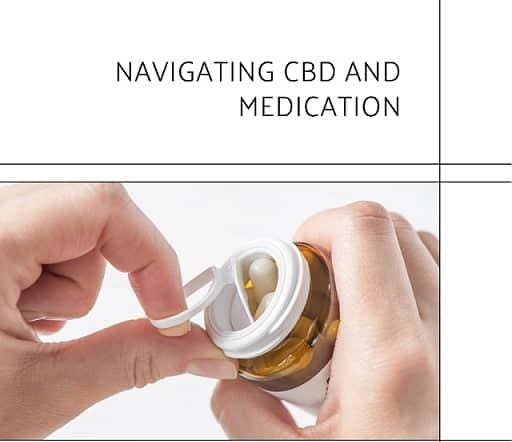Interactions Between CBD and Medication: As the popularity of CBD continues to grow, more and more people are turning to this natural supplement for relief from a variety of ailments. However, for those who are also taking prescription medication, there can be concerns about potential interactions between the two.
At CBD Oil Marketplace, we believe in providing comprehensive and accurate information about CBD and its effects. In this article, we will explore the topic of interactions between CBD and medication and provide you with the information you need to make informed decisions about your health.
Table of Contents
Understanding the Interactions Between CBD and Medication
First, it’s important to understand how CBD interacts with medication. CBD is metabolized by enzymes in the liver, which can also break down certain medications. This can lead to changes in the way medications are processed by the body, potentially increasing or decreasing their effectiveness.
In some cases, this can lead to adverse effects, such as increased side effects or reduced efficacy of medication. However, not all medications are affected in the same way, and some may not be impacted at all.
It’s also important to note that the research on CBD and medication interactions is still limited, and much of what we know comes from studies on animals or small human studies. As such, it’s always best to consult with a healthcare professional before taking CBD alongside any medication.

Common Medications That May Interact With CBD
While CBD can potentially interact with a wide range of medications, there are some that are particularly noteworthy. Here are a few examples:
- Blood Thinners: CBD may increase the risk of bleeding when taken with blood-thinning medications such as warfarin or heparin.
- Antidepressants: CBD may increase the levels of certain antidepressants in the blood, potentially leading to side effects.
- Anti-Seizure Medications: CBD may interact with anti-seizure medications such as clobazam, increasing the risk of side effects.
- Beta Blockers: CBD may increase the levels of beta blockers in the blood, potentially leading to side effects such as low blood pressure or dizziness.
Again, it’s important to note that not all individuals will experience these interactions, and consulting with a healthcare professional is always the best course of action.
Tips for Taking CBD with Medication
If you are considering taking CBD alongside medication, there are a few things you can do to minimize the risk of interactions:
- Consult with a healthcare professional before starting CBD to ensure it is safe for you to take alongside your medication.
- Start with a low dose of CBD and gradually increase as needed.
- Monitor for any potential side effects or changes in the effectiveness of your medication.
- Consider using a different method of CBD delivery, such as topical application or inhalation, to minimize the risk of interactions with orally ingested medications.
Interactions Between CBD and Medication: Conclusion
While there is still much to learn about the potential interactions between CBD and medication, it’s important to approach this supplement with caution when taking medication. By consulting with a healthcare professional and being mindful of potential interactions, you can safely and effectively incorporate CBD into your wellness routine.
At CBD Oil Marketplace, we believe in providing the highest quality CBD products and the most accurate information about its effects. We hope this article has been informative and helpful in answering your questions about interactions between CBD and medication. Thank you for considering CBD Oil Marketplace for your CBD needs!




[…] you are using CBD and are worried about failing a drug test, there are a few steps you can take to stay […]